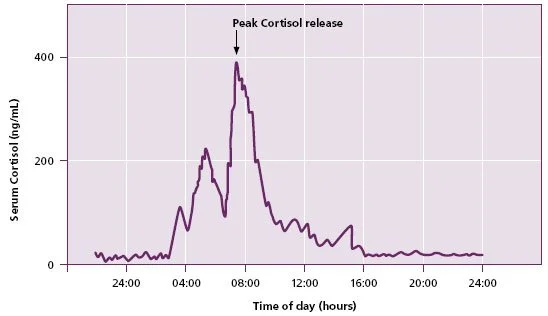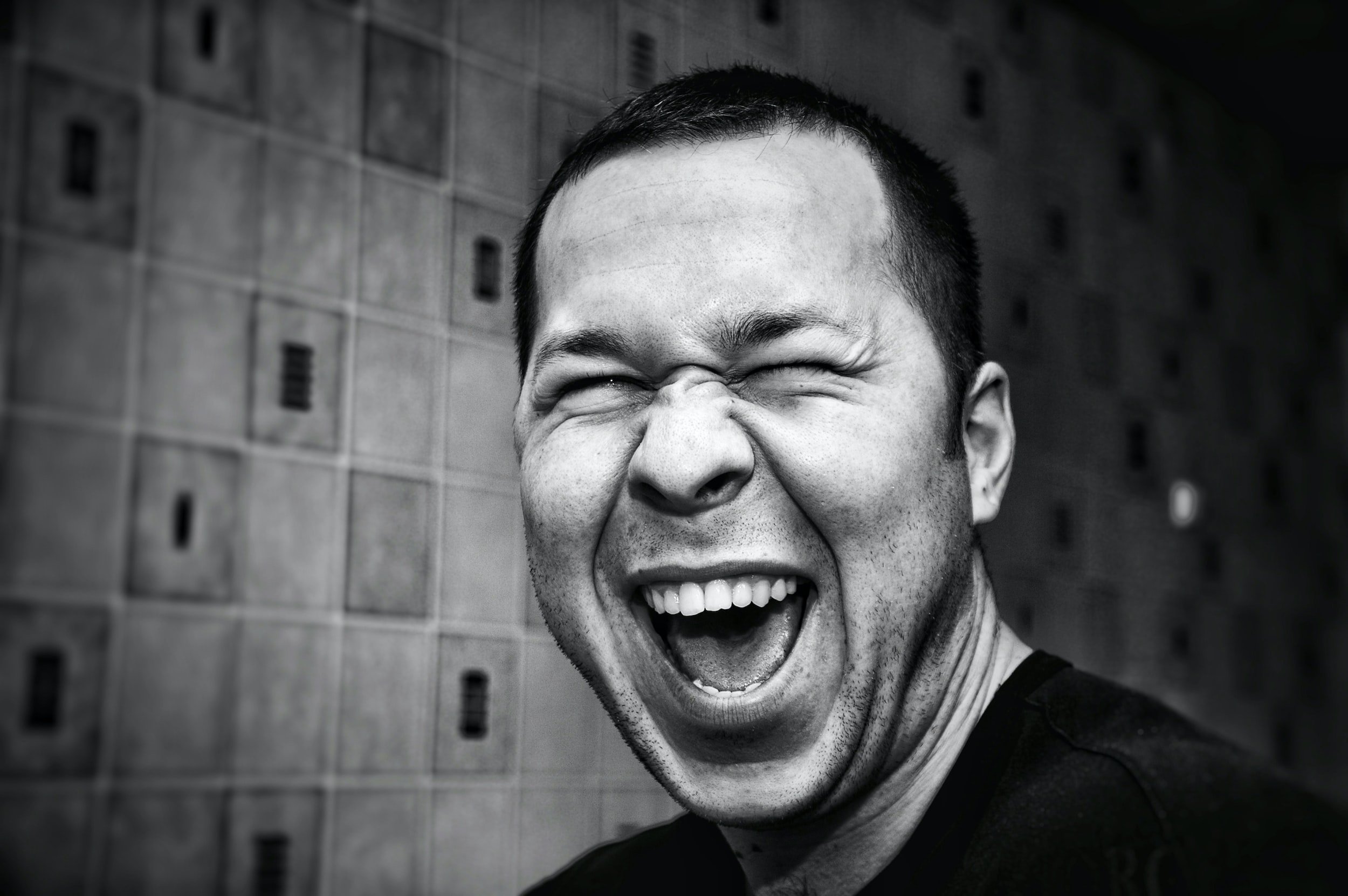Why does oversleeping make you tired?
The short answer
Oversleeping can make you feel more tired because it throws off your internal clock. You might wake up during a deep sleep stage, miss your body’s natural cortisol boost that helps you feel alert, and wake up dehydrated – all of which can cause you to feel tired.
The long answer
After a long week of early alarms, nothing seems as tantalizing as sleeping in way past your usual wake-up time on the weekend.
But the plan backfires: After more sleep than usual, you feel ... tired?
Here are a few reasons why oversleeping (i.e. sleeping past your normal wake-up time) leads you to feeling more tired:
Reason #1: Your circadian rhythm gets messed up.
Your body has a built-in 24-hour internal clock called the circadian rhythm. Largely regulated by light exposure, this clock regulates when you feel awake or sleepy, along with numerous other bodily mechanisms like metabolic activity, heart rate, body temperature, and hormone secretion.
"Biological clock human" by YassineMrabet is licensed under CC BY-SA 3.0.
Evolutionarily, the circadian rhythm provides several advantages. By feeling awake during the daylight hours, we'll have a better chance at finding a mate, avoiding predators, and collecting food.
When you sleep in, your body figures it's still nighttime because your eyes are closed. Darkness = night as far as your circadian rhythm is concerned, so this pushes your body out of sync with its usual schedule (similar to jet lag). This misalignment throws off your internal clock and can lead you feeling more fatigued.
Reason #2: You may be waking up in a deep sleep stage.
When you sleep, your body goes through multiple repeating cycles of different stages:
Stage #1: Light sleep: This is when you're drifting off to sleep. Your muscles relax and your heart rate slows.
Stage #2: Light sleep (but deeper): Your body temperature starts to drop, heart rate slows more, and eye movement stops.
Stage #3/4: Deep sleep: This is when your body enters a restorative state, repairing tissue and strengthening the immune system. Your breathing rate and heart rate slows, and your brain enters a slow/delta waves pattern.
REM sleep: In "rapid eye movement" sleep, your brain activity increases to levels nearing those seen when you're awake. Your body paralyzes itself, with the exception of breathing and eye movement. This is when you're dreaming.
A full sleep cycle goes through each of these stages and lasts about 90 minutes. You repeat this cycle about 4-6 times while you're asleep.
Source: Simple Psychology
Oversleeping increases the chance you’ll wake up in the middle of a deep sleep stage, rather than at the end of a cycle. Waking up from deep sleep can trigger sleep inertia, a period of grogginess and mental fog that occurs after abrupt awakening. While we all experience some degree of sleep inertia, it's most intense after you wake up during deep sleep.
Reason #3: Hormones that signal sleepiness and wakefulness get thrown off.
Hormones play a large role when and why you feel sleepy or alert. Two of the most critical hormones in this function are melatonin and cortisol.
Melatonin signals to your body that it's time to go to bed and ramps up in the evening, peaking in the middle of the night before dropping back down to daytime levels in the early morning.
"Melatonin production in 24 hour cycle" by Rechargeenergy is licensed under CC BY-SA 4.0.
Cortisol, often called the "wake-up hormone," is a stress hormone that signals it's time to get up. It peaks shortly after your normal wake-up time before dropping down to lower levels throughout the day.
Source: Warde Medical Laboratory
Melatonin and cortisol are designed to move in opposite directions. When melatonin is high and cortisol is low, you feel sleepy. When cortisol is high and melatonin is low, you feel awake. Oversleeping disrupts this hormonal balance.
When you oversleep, you may miss the cortisol peak that helps you feel awake. So even though melatonin is tapering off, you're waking up without the alertness boost that cortisol provides. The result is you feel sleepy even though you got extra sleep.
Reason #4: You may be dehydrated.
While you sleep, you lose water from sweating, waking up to urinate, and breathing (especially if you're a mouth-breather). Because you can't replenish your fluids while you're asleep, it's common to feel dehydrated when you wake up.
If you sleep more hours than usual, it's more likely that you're dehydrated and this can cause a stronger feeling of fatigue than if you had woken up earlier.
Curious about how the world works?
Today You Should Know is a free, weekly email newsletter designed to help you learn something new every Friday.
Subscribe today 👇
Check out some other curious questions:
Sources
Ganio, M. S., Armstrong, L. E., Casa, D. J., McDermott, B. P., Lee, E. C., Yamamoto, L. M., Marzano, S., Lopez, R. M., Jimenez, L., Le Bellego, L., Chevillotte, E., & Lieberman, H. R. (2011). Mild dehydration impairs cognitive performance and mood of men. British Journal of Nutrition, 106(10), 1535–1543. https://doi.org/10.1017/s0007114511002005
Leonard, J. (2024, March 5). Causes and treatment options for waking up tired. Medical News Today. https://www.medicalnewstoday.com/articles/waking-up-tired
McBride, A. (2023, December 17). Wait, Why Am I Always So Tired on My Days Off?!. Well+Good. https://www.wellandgood.com/lifestyle/why-am-i-so-tired-on-my-days-off
Okoye, A. (2024, February 5). Dehydration and Sleep. Sleep Doctor. https://sleepdoctor.com/pages/health/dehydration-and-sleep
Ruhl, C. (2023, August 3). 5 Stages of Sleep (REM and Non-REM Sleep Cycles). Simply Psychology. https://www.simplypsychology.org/sleep-stages.html
Spayde, J. (2018, August 30). Why Do I Feel Depressed and Fatigued When I Sleep Late?. Experience Life. https://experiencelife.lifetime.life/article/why-do-i-feel-depressed-and-fatigued-when-i-sleep-late/
Steinek, C. (2022, April 19). How Oversleeping Destroys Your Body. YouTube. https://www.youtube.com/watch?v=Vrreufq82Mc
Stockton, N. (2014, July 22). What’s up with that: Why does sleeping in just make me more tired? Wired. https://www.wired.com/2014/07/whats-up-with-that-why-does-sleeping-in-just-make-me-more-tired/
Suni, E. (2025, May 21). Stages of Sleep: What Happens in a Normal Sleep Cycle?. Sleep Foundation. https://www.sleepfoundation.org/stages-of-sleep
Tassi, P., & Muzet, A. (2000). Sleep inertia. Sleep Medicine Reviews, 4(4), 341–353. https://doi.org/10.1053/smrv.2000.0098
Vaze, K. M., & Sharma, V. K. (2013). On the adaptive significance of circadian clocks for their owners. Chronobiology International, 30(4), 413–433. https://doi.org/10.3109/07420528.2012.754457









We Americans sure do like American things.